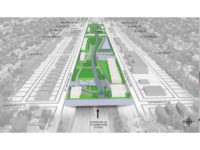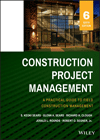Transportation Projects
Feds Allow Controversial Houston Highway Project to Partly Resume
Some work will continue on $10B I-45 reconstruction along with civil rights, environmental probes

Federal transportation officials will allow sections of a $10-billion highway expansion plan in Houston to proceed while continuing to assess possible civil rights and environmental violations associated with the project’s more controversial elements.
Known as the North Houston Highway Improvement Project, the three-phase plan calls for shifting a portion of Interstate 45 to a new alignment along the east side of the central business district, providing room for the Texas Dept. of Transportation (TxDOT) to incorporate a system of both conventional and managed lanes between downtown and Beltway 8. The project would also implement safety and capacity improvements to adjacent sections of I-10 and I-59.
Although studies have found the existing 50-year-old I-45 corridor to contain some of the nation’s most deadly stretches of interstate, critics contend the project will have a disproportionate effect on low-income neighborhoods while doing little to deliver the promised traffic improvements. Agency environmental documents predict the relocation plan would displace hundreds of single-family and multi-family residences, including nearly 500 public and low-income housing units, as well as more than 300 businesses.
Just weeks after the agecy's February 2021 record of decision on the project, the Federal Highway Administration (FHWA) ordered the project to be paused while it investigates possible violations of the 1964 Civil Rights Act’s provisions against discrimination in federally funded programs. Harris County also sued the state to halt the project. FHWA reissued its order in June following reports that TxDOT had continued the expansion’s property acquisition process.
Under an agreement with the federal agency announced Nov. 30, TxDOT will resume internal design work for a section of I-69 and a nearby three-highway junction. FHWA has also consulted with county officials. However, county commissioners voted to pause the lawsuit in mid-November in hopes of renegotiating with TxDOT.
With no timetable for completion of the federal investigation and lingering uncertainty regarding any potential scope changes, TxDOT will have to reassess the project’s multi-year schedule and funding allocations.
Selection of a design-build contractor for the program’s first phase, originally scheduled for 2022, will likely be delayed for at least two years, agency officials said.






